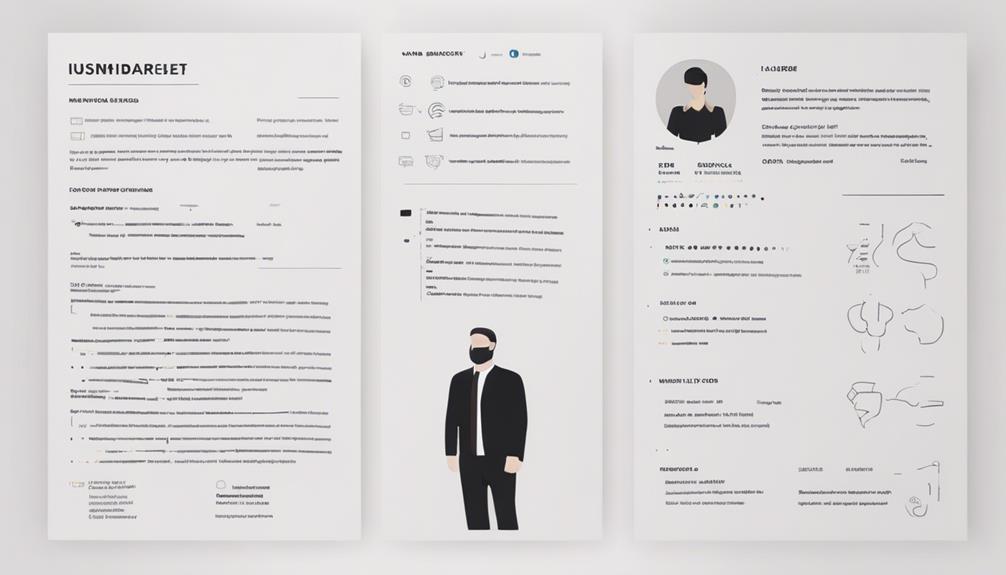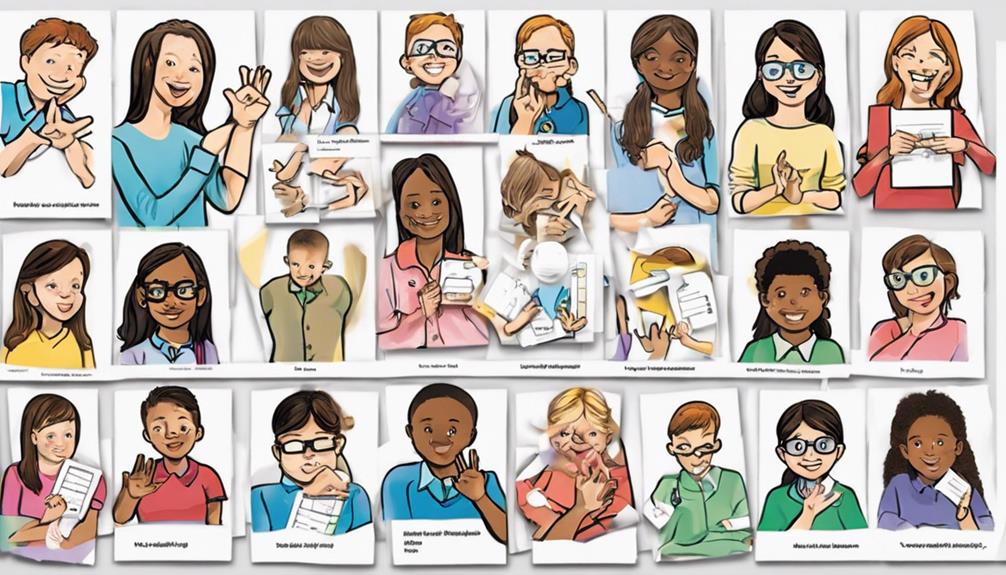Finding remote job opportunities for individuals who are deaf or hard of hearing can pose special challenges that need specific strategies to navigate successfully. As we delve into the realm of searching for remote jobs, we will discover custom approaches that not only improve accessibility but also unlock the doors to a variety of rewarding career paths. Translated text: Finding remote job opportunities for individuals who are deaf or hard of hearing can pose special challenges that require specific strategies to navigate successfully. As we explore the landscape of remote job searching, we will uncover tailored approaches that not only enhance accessibility but also open doors to a multitude of fulfilling career paths.
Join us in unraveling the secrets to securing remote work from home jobs that cater to the unique needs of the deaf and hard of hearing community, paving the way for professional growth and empowerment in the digital age.
Key Takeaways
- Utilize tailored job platforms like FlexJobs for verified remote job opportunities.
- Highlight communication skills and accommodations on resumes for inclusivity.
- Engage with deaf-specific networks for job leads and support.
- Access communication support tools and technology for effective remote work.
Job Search Platforms for Accessibility
When searching for remote work opportunities catered to the needs of deaf and hard of hearing individuals, job search platforms like FlexJobs prove to be invaluable resources. These platforms are designed to offer a seamless experience for individuals looking for remote and flexible job listings that prioritize accessibility. With advanced search filters tailored for the deaf and hard of hearing community, finding suitable jobs becomes efficient and effective.
FlexJobs stands out by providing hand-screened job listings, ensuring that users can trust the authenticity of the opportunities presented. This feature saves time and prevents users from falling prey to scams or irrelevant postings. Additionally, the platform offers personalized job alerts based on specific criteria, keeping users informed about relevant job openings in real-time.
With over 34,780 current remote and flexible job listings, job search platforms like FlexJobs cater to the unique needs of deaf and hard of hearing individuals, empowering them to explore a wide range of job opportunities in a supportive and accessible online environment.
Tailoring Your Resume for Inclusivity

For individuals seeking remote work opportunities tailored to the needs of the deaf and hard of hearing community, effectively showcasing inclusivity on your resume is crucial. When tailoring your resume for inclusivity, consider the following:
- Highlight your proficiency in sign language and any communication accommodations you use.
- Include relevant work experience demonstrating your ability to overcome communication barriers in remote settings.
- Emphasize your written communication skills and proficiency in virtual collaboration tools.
- Showcase any certifications related to accessibility, deaf culture, or remote work to differentiate yourself to potential employers.
Networking Within the Deaf Community
Networking within the deaf community offers a wealth of opportunities for job leads, connections, and support, essential for pursuing remote work options. Engaging with deaf-specific job fairs, online forums, and social media groups can be excellent ways to expand your network. These platforms provide avenues to connect with deaf professionals who may offer valuable insights and job opportunities in the remote work landscape.
Additionally, participating in deaf advocacy groups and events can further broaden your connections and knowledge about potential remote work options. Collaborating with deaf-owned businesses or organizations can also lead to fruitful partnerships and job referrals in the remote work sector.
Leveraging Remote Work Resources

We're here to guide you through leveraging remote work resources effectively.
Let's explore how remote job platforms like FlexJobs can connect you with verified opportunities.
We'll also share practical remote work tips and online networking strategies tailored to your needs.
Remote Job Platforms
Exploring remote job platforms can open up a world of opportunities for individuals seeking flexible work options, including those who are deaf or hard of hearing. When utilizing platforms like FlexJobs, individuals can access over 34,780 current remote and flexible job opportunities worldwide. These platforms offer skills tests, expert content, and helpful customer service to aid in finding suitable remote work. FlexJobs provides advanced search filters, personalized job alerts, and hand-screened listings, ensuring a streamlined experience free from ads, scams, or irrelevant listings.
- Skills tests, expert content, and customer service support
- Worldwide job opportunities
- Advanced search filters and personalized job alerts
- Hand-screened listings for a streamlined experience
Remote Work Tips
To maximize your chances of securing remote work opportunities tailored to your needs as a deaf or hard of hearing individual, consider utilizing specialized job boards and filters like FlexJobs and Indeed. These platforms offer a variety of remote positions with keywords such as 'work from home' or 'telecommute' to streamline your job search.
Companies like LanguageLine Solutions and Sorenson Communications are known for providing remote work options specifically for the deaf and hard of hearing community. Signing up for job alerts on platforms like FlexJobs can help you stay updated on the latest remote job openings that match your criteria.
Additionally, networking with organizations like Communication Service for the Deaf (CSD) can provide access to resources and job opportunities focused on remote work for individuals with hearing impairments.
Online Networking Strategies
Engage with online platforms like LinkedIn, FlexJobs, and Indeed to connect with remote job opportunities tailored to the needs of the Deaf and Hard of Hearing community.
Join virtual job fairs, webinars, and online networking events to expand professional connections.
Participate in digital communities, forums, and social media groups focused on remote work.
Utilize remote work resources such as job boards, career websites, and virtual job search tools.
Connect with online mentors, career coaches, and industry experts in the remote work space for guidance specific to your job search.
Interview Tips for Deaf Applicants

As a deaf applicant preparing for interviews, it's crucial to have visual aids or written notes ready for effective communication. Requesting accommodations like ASL interpreters or video relay services can greatly enhance your interview experience.
When discussing communication preferences and technologies with the interviewer, remember to advocate for your needs confidently to ensure equal access throughout the process.
Communication Strategies During Interviews
When preparing for interviews as a deaf applicant, it's essential to discuss your preferred communication method upfront to ensure effective interaction. Here are some tips to help you navigate the interview process successfully:
- Request necessary accommodations like video relay services or captioning in advance.
- Share your experience with remote work tools that support communication.
- Practice active listening and maintain eye contact during virtual interviews.
- Prepare responses to showcase your skills, qualifications, and suitability for remote work opportunities.
Accommodations and Technology Use
Transitioning from discussing communication strategies during interviews, deaf applicants can optimize their interview experience by leveraging accommodations and technology that support effective communication.
Utilize video relay services (VRS) to facilitate virtual interviews, ensuring clear camera angles for sign language visibility. Discuss preferred communication methods and accommodations with potential employers beforehand.
During interviews, use text-based options for follow-up questions and request captioning or real-time transcription for full access to spoken content. These strategies enhance accessibility in remote work settings, empowering deaf applicants to showcase their skills confidently.
Navigating Workplace Accommodations

Navigating workplace accommodations for deaf and hard of hearing individuals involves identifying and implementing solutions tailored to individual needs and job requirements. When it comes to ensuring a supportive work environment, there are key considerations to keep in mind:
- ASL Interpreters: Providing American Sign Language interpreters can facilitate effective communication for deaf employees during meetings and discussions.
- Captioning Services: Utilizing captioning services for videos, webinars, and other multimedia content ensures accessibility for individuals who are hard of hearing.
- Assistive Listening Devices: Equipping workspaces with assistive listening devices enhances sound clarity and minimizes background noise for better auditory comprehension.
- Reasonable Accommodations: Employers are mandated by the Americans with Disabilities Act to offer reasonable accommodations, such as video relay services or text-based communication, to support deaf and hard of hearing employees in fulfilling their job responsibilities effectively.
Frequently Asked Questions
Can Deaf People Work From Home?
Yes, deaf people can work from home. Remote job opportunities provide accessibility and flexibility for individuals with hearing impairments. Advancements in technology, such as video conferencing and messaging apps, facilitate effective communication in remote work settings.
Remote jobs offer a wider range of opportunities without geographical constraints, promoting inclusivity and work-life balance. Embracing remote work options can empower deaf individuals to thrive in their careers while accommodating their communication needs.
Can Deaf People Work at Amazon?
Absolutely, deaf individuals can work at Amazon! The company's 'Amazon@Work' program actively hires people with disabilities, including those who are deaf or hard of hearing. Amazon offers a range of roles like customer service, warehouse operations, and corporate positions.
They provide accommodations such as ASL interpreters and video relay services. Interested individuals can explore job opportunities on Amazon's career website and apply for suitable positions.
How to Find a Job When You Are Deaf?
When we're deaf and searching for a job, it's vital to explore inclusive companies, enhance our skills like ASL proficiency, and tap into networks for hidden opportunities.
By connecting with deaf professionals and utilizing job platforms with remote filters, we can find suitable roles. Considering freelance options for flexibility is also beneficial.
It's about empowering ourselves with the right tools and connections to succeed in the job market.
Do Deaf People Have a Hard Time Finding Employment?
Finding employment can be challenging for deaf individuals due to communication barriers and discrimination. However, with advancements in technology and increasing awareness about inclusivity, opportunities are expanding.
Remote work options provide accessibility and flexibility that can benefit deaf and hard of hearing individuals in the job market. Overcoming obstacles, we see a shift towards more inclusive workplaces, offering hope for improved employment prospects for the deaf community.
Are There Remote Work Opportunities Specifically for the Deaf and Hard of Hearing Community?
Many organizations offer inclusive summer camps for deaf and hard of hearing individuals with remote work opportunities. These camps provide a supportive and accessible environment where participants can develop valuable skills and connect with mentors. Remote work options can open up new career opportunities for those in the deaf and hard of hearing community.
Conclusion
In our quest for remote job opportunities, we've uncovered a world of possibilities that cater to our unique needs. By embracing inclusivity and leveraging our strengths, we've opened doors to a future filled with endless possibilities.
Let's continue to navigate this journey with resilience and determination, knowing that our voices are being heard and our talents valued in the workplace. Together, we can create a more inclusive and accessible world for all.











